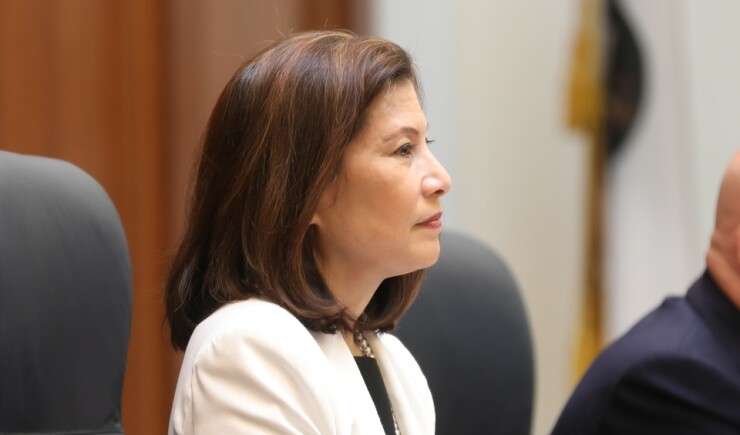California Supreme Court justices peppered attorneys with questions during oral arguments Tuesday in a case that has the potential to upend precedent about how public pensions are treated in California.
The high court has 90 days to rule on the case.
The hearing was the second of several cases that could weaken or solidify the status of the “California Rule,” a series of decisions originating in the 1950s that have made it difficult for state and local governments to reduce prospective pension benefits for existing employees.
The hearing was held in San Francisco, but because of social distancing guidelines amid the COVID-19 pandemic, five of the seven justices participated remotely, as did the attorneys.

Alameda County Deputy Sheriff’s Association v. Alameda County Employees’ Retirement Association is specifically being fought over certain aspects of the Public Employees’ Pension Reform Act of 2013 (PEPRA).
“I don’t want to be presumptuous, but our hope is the court will follow its precedents and continue to find that the government can’t impair employee rights, just because they have had unexpected circumstances and they would rather spend the money on other things,” David E. Mastagni, partner in labor and employment practice of law firm Mastagni Holstedt, A.P.C., said in an interview after the hearing.
Mastagni represents the Alameda County Deputy Sheriff’s Association, the plaintiff in the case.
The union plaintiffs
Former California Gov. Jerry Brown signed PEPRA, portrayed as an attempt to curb pervasive abuses in public pension systems throughout California, into law in September 2012.
Rei Onishi, deputy legal affairs secretary in the office of Gov. Gavin Newsom, argued during the hearing that state and local governments are hurting right now — and the issues at stake are looming large as government revenues have fallen off a cliff amid stay-at-home orders that have exceeded 40 days in California.
"Many counties and cities are struggling to pay for their pension liabilities," Onishi said. "On top of the legitimate pensions, should taxpayers and their grandchildren be responsible to cover pension spiking?"
He argued the unions' arguments that PEPRA violates the contract clause fails, because inflating employee salaries was never lawful, even before PEPRA, so it does not create vested rights to a pension.
“The bond markets ought to be rooting for pensioners,” Mastagni said in the interview.
Mastagni argued during the hearing that what Brown signed into law in PEPRA violates contract law that dates back to the Great Depression.
“I was involved in the Stockton bankruptcy,” Mastagni said. “Contract law protects property rights against the government making a decision to not fund something they are obligated to fund, because they would rather spend the money elsewhere.”
The constitutional statute says the government can’t use some hardship to shirk its obligations, for instance, to avoid raising taxes, Mastagni said.
Pension attorneys representing the state have been pushing for more clarity around the rule that would allow for pension reform that could ease pension burdens for state and local governments and make the pension system stronger.
The Justices could provide hoped-for clarity around the California Rule, or issue a more limited opinion that hits on the arguments specific to the case.
Attorneys who represent the unions argue that the court should maintain the status quo of the California Rule, which they have interpreted as affirming that pension benefits can only be modified if employees are granted a comparable benefit to make up for what is lost in pension reform.
Tuesday's hearing followed years of proceedings. The trial court originally rendered a decision in 2014 that was appealed.





